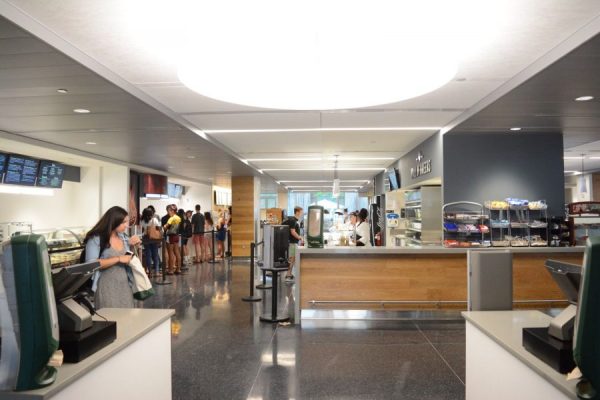
Students hope that the management under Tulane University’s new dining partner, Aramark Collegiate Hospitality, will strengthen service and improve dining quality.
Sodexo’s departure, however, was bound to happen not because of its employees or location, but because of complaints raised by Tulane students and Sodexo’s own employees. While some students have blamed the employees, others blamed Sodexo, and some simply believed that there is no solution to the quality of food management at Tulane no matter the company.
According to their website, Sodexo specializes in facility management and food services, with over 430,000 employees and 80 million consumers served daily in 45 countries. Their mission is “to improve the quality of life of its employees and all those we serve, and to contribute to economic and social development and environmental protection in the territories in which we operate.”
Where did Sodexo fall short on this promise at Tulane?
Sodexo experienced foundational issues even in the beginning of its partnership with Tulane. While Sodexo has been under contract with Tulane for over 40 years, employees participated in multiple strikes over the last 15 years, mainly advocating for higher wages and better benefits. These issues manifested into a more troubling tale for the company’s employees up until Sodexo’s demise at Tulane.
In an Organizational Behavior class project, Tulane undergraduates Sydney Veloso, Bella Diamond, Conor Becks, Daniella Asaro, Isabelle Easton, Allegra Giussani and Manya Singh researched job satisfaction among Sodexo employees. The students conducted an anonymous form where a sample size of 18 Sodexo employees ranked their job satisfaction from 1-10. Over 88% of Sodexo employees who completed the form ranked their job satisfaction a 5 or below. Interviews with Sodexo employees paint a broader picture of these troubling results.
Cory Morgan, a Sodexo employee, said there was virtually no standard training protocol for new employees. A former manager of Starbucks, Morgan said he had to train his colleagues for no additional compensation. Morgan also discussed concerns of favoritism, which he says affected management’s design of lower-ranked employees’ work schedules. Additionally, Morgan said that management assigned men and women work that aligned with traditional gender roles and that uniform requirements removed opportunities for personal expression.
Ultimately, the issues Morgan raised concerned Sodexo’s leadership. He said he felt that Sodexo’s structure was unequal, and that communication existed within management but not with subordinates.
In another interview with a Malkin Sacks Commons employee, Demetra, she shared that she got no sick leave or paid time off, which she felt affected her overall work motivation and satisfaction. Demetra’s feedback echoed that of others, who noted that minimal breaks during eight-hour workdays exacerbated dissatisfaction with their jobs.
These are only a few of the stories of unsatisfied Sodexo employees. On the employment website Indeed.com, Sodexo received a 2.1 stars out of five overall rating from employees, with its lowest rating of 1.7 stars for its management. One patient ambassador who rated Sodexo one star, stated “Very unpleasant, unorganized, uncomfortable, sad place when you wanna work and do your job.” Another senior supervisor, who rated Sodexo two stars, simply said “Horrible management. Horrible.”
Some students are hesitant if new management will change anything at Tulane. Hopefully, Aramark will not follow in Sodexo’s footsteps and provide better compensation and benefits, enhance training and development and improve work-life balance for employees to create a more stable organizational structure for their employees.


